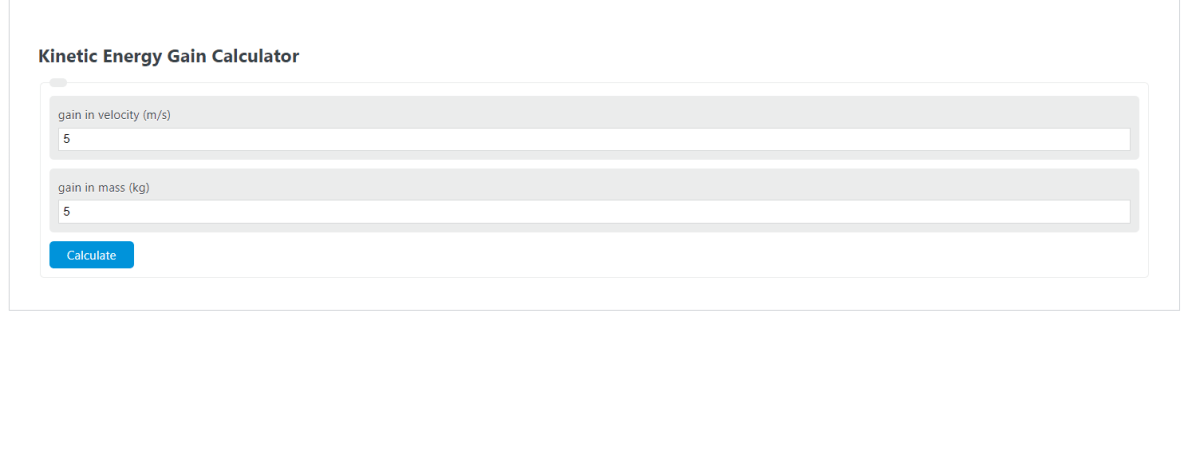Enter the gain in velocity (m/s) and the gain in mass (kg) into the calculator to determine the Kinetic Energy Gain.
- All Energy Calculators
- Kinetic Energy Calculator
- Final Kinetic Energy Calculator
- Initial Kinetic Energy Calculator
- Change in Internal Energy Calculator
- Net Kinetic Energy Calculator
Kinetic Energy Gain Formula
The following equation is used to calculate the Kinetic Energy Gain.
KEg = .5 * dV^2 * dm
Variables:
- Where Keg is the Kinetic Energy Gain (Joules, J)
- dV is the gain in velocity (m/s)
- dM is the gain in mass (kg)
To calculate the kinetic energy gain, multiply the gain in velocity squared by the mass, then divide by 2.
How to Calculate Kinetic Energy Gain?
The following two example problems outline the steps and information needed in order to calculate the Kinetic Energy Gain.
Example Problem #1:
- First, determine the gain in velocity (m/s). In this example, the gain in velocity (m/s) is measured to be 4.
- Next, determine the gain in mass (kg). For this problem, the gain in mass (kg) is calculated to be 8.
- Finally, calculate the Kinetic Energy Gain using the formula above:
KEg = .5 * dV^2 * dm
Inserting the values from above and solving the equation with the imputed values gives:
KEg = .5 * 4^2 * 8 = 64 (Joules, J)
Example Problem #2:
Using the same process as example problem 1, we first define the needed variables outlined by the formula. In this case, the values are provide as:
gain in velocity (m/s) = 9
gain in mass (kg) = 3
Entering these values into the formula or calculator above gives us:
KEg = .5 * 9^2 * 3 = 121.5 (Joules, J)
